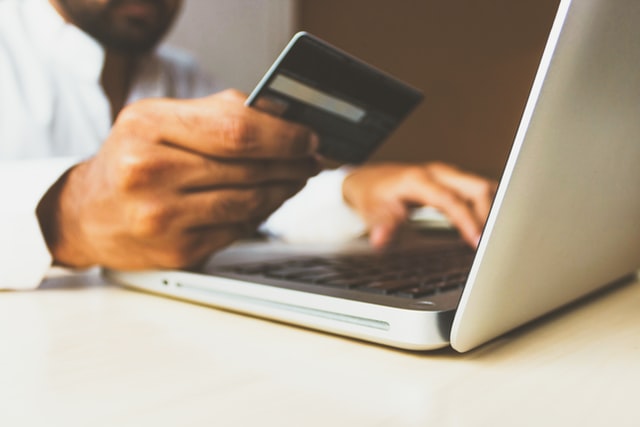
Sometimes, avoiding debt can be an incredibly arduous task. But, with various new UK tax laws to worry about, things may be even more complicated. Here’s how to tackle it…
Falling into debt is something everybody wants to avoid. Even if it isn’t your fault, there are several awkward consequences to being in debt, all of which can quickly add up to make life very difficult.
For many people, one of the biggest reasons for struggling with debt is having to deal with the various taxes that come with being a UK resident. With there being a number of recent changes to UK tax laws, such as an increase to National Insurance thresholds and dividend tax rates, many people are understandably worried that this could result in debt.
Here, we discuss some of the ways you can avoid falling into debt as a result of the new UK tax laws, from simple tips such as careful budgeting, through to consulting debt advice specialists for detailed support. So, to find out how you can avoid debt as a result of new UK tax laws, be sure to read on below…

7 Effective Tips for Avoiding Falling into Debt
Create a Clear Budget Plan
If you want to make sure that you avoid falling into debt, one of the most important steps you need to take, regardless of what your personal circumstances look like, is to create a clear budget plan – and stick to it!
There are a number of ways you can break a budget plan down. It’s a good idea to take a close look at your annual, monthly, and weekly spending habits, so you can see exactly how much money you’re spending on rent, mortgages, taxes and bills. This way, you can see exactly what you have left over and what you have to work with.
When you create a detailed budget plan, you’ll also be able to see how new tax laws will affect how much you’re having to spend, both on a short and long-term basis. From this, you can adjust your other spending habits accordingly.
Get a Full Update of Every Tax Update That Affects You
If you’re organised and attentive about your money, you’ll likely have a list of every tax you pay. Thankfully, if you’re employed, many taxes are automatically deducted from your wages, which certainly simplifies things, but there are some taxes (such as income tax) which you will need to organise yourself.
This means that it’s vital to review and assess every tax updates to see which ones are relevant to you. In some cases, especially if you’re self-employed, you may learn that you’re overpaying on tax. While yes, you’ll get that money back in the form of a tax rebate, that isn’t helpful if you end up falling into debt in the meantime.
Assess What Interest Your Money Is Accumulating
What many people fail to realise is that you can change the type of savings account you have and the bank you use at any time. It’s often the case that people are stuck accumulating very little interest on their money, when there are other more suitable savings accounts available that would allow them to generate much more long-term income.
If you think that the interest rate attached to your savings account is failing to support your financial goals, there’s no harm in shopping around to see what other options are available.
Make Strides to Build an Emergency Fund
This might seem a little counterproductive, especially if money is already tight, but it’s worth keeping in mind. If you want to avoid falling into debt, having an emergency fund behind you as a buffer is highly advisable.
So, when you’re putting money into savings, consider syphoning small amounts into a separate account that can’t be touched. This can sit there, ready to be used if the worst does come to pass.
Don’t Forget the Impact of Your Credit Card Bill
Credit cards can seem like an open invitation to spend money you don’t actually have. But, they come with plenty of risks, especially if you aren’t eventually going to have the money to pay off your bill.
There’s nothing wrong with using your credit card. But, if you’re worried about money, it’s a good idea to use a credit card as you would a debit card. By only spending what you know you can pay back, you’re much less likely to find yourself falling into spiralling debt.

Don’t Borrow More Than What’s Required
The same principle applies with loans. There’s nothing inherently wrong with applying for a loan, especially if it comes from a reputable source like your bank. But, you need to be careful to not stretch beyond your limits.
Many ‘payday loan companies’ have ceased trading for various reasons, but there are still a few in operation. If you’re financial situation is precarious, it’s highly advisable not to use these companies for a loan, as the interest rates for repayment can often be incredibly steep.
Speak to an Expert Financial or Debt Advisor
It’s all very well taking these steps by yourself, and doing so will certainly put you in a better position. However, if you really want to get to grips with your finances and prevent yourself from falling into debt, it’s a sensible idea to speak to an expert financial or debt advisor.
They’ll be able to review your situation in meticulous detail and assess what the best possible options are moving forwards.
Are You Concerned That New UK Tax Laws Could Put You in Debt?
So, there you have it! In this post, we’ve discussed some of the best ways you can make sure you stay on top of your finances and avoid falling into debt in spite of the recent changes to UK tax laws.
Have you got any specific concerns about the changes to UK tax laws? Or are you simply worried about falling into debt? Feel free to leave a comment below with your thoughts!
Please be advised that this article is for general informational purposes only, and should not be used as a substitute for advice from a trained financial professional. Be sure to consult a financial advisor if you’re seeking advice on your finances. We are not liable for risks or issues associated with using or acting upon the information on this site.